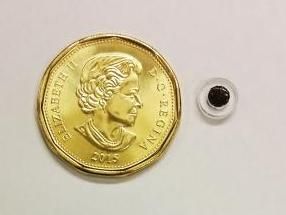Clinical study demonstrates superior efficacy of Docetaxel chemotherapy
The chemotherapy drug docetaxel currently offers the best treatment for androgen-independent prostate cancer. That is the result of a now published clinical trial that compared the efficacy of the two most widely used chemotherapy drugs. When using docetaxel, the risk of disease progression was cut by more than 50% than when using the next-best chemotherapy drug.
The use of chemotherapy to treat prostate cancer has rapidly grown in importance over recent years, with several comprehensive clinical trials helping to drive forward progress. In two of these trials, the chemotherapy drug docetaxel offered patients a significantly improved prognosis. However, other clinical trials indicated that the drug vinorelbine, which like docetaxel acts on cellular microtubuli, also produces impressive results and it is often used as an alternative to docetaxel.
The Medical University of Vienna has now carried out the world¹s first direct comparison of both drugs, giving doctors valuable support in choosing the appropriate treatment for their patients.
The trial clearly demonstrated the superior efficacy of docetaxel by using 40 patients to directly compare the drug against vinorelbine. The initiator and coordinator of the study, Prof. Michael Krainer, oncologist at the Department of Internal Medicine I, Medical University of Vienna, describes the outcome of the trial: "The median time to disease progression in all 20 patients we treated with docetaxel was more than three times longer than in the patients given vinorelbine." Cancerous tumours in patients from the first group did not progress for an average period of 14.5 months. In contrast, the median time to first disease progression in the patients treated with vinorelbine was only 4.4 months.
Values for "prostate-specific antigen" (PSA), an established tumour marker that indicates when a cancer is progressing, were similarly conclusive. While 62.5% of the patients treated with docetaxel exhibited an over 50% reduction in PSA, a reduction of only 11.1% was detected among those treated with vinorelbine. This is a clear indication that docetaxel restricts tumour growth.
Even the team working on the study were surprised at the scale of the reduction in PSA produced by docetaxel. Prof. Krainer explains: "We used a much lower dose than that used during the TAX 327 study, which was the first to demonstrate the efficacy of docetaxel in a phase III trial, and we also chose not to boost the efficacy of the chemotherapy drug with cortisone premedication. Nevertheless, we still achieved a similar effect on PSA." Prof. Krainer believes this effect could be due to the lower toxicity which was produced by using a lower dose and which helped improve the efficacy of the therapy regimen.
Original publication: "A Prospective, Open Label, Randomized Phase II Trial of Weekly Docetaxel Versus Weekly Vinorelbine as First Line Chemotherapy in Patients with Androgen Independent Prostate Cancer."; J. Urol. 2007.
Most read news
Topics
Organizations
Other news from the department science

Get the life science industry in your inbox
By submitting this form you agree that LUMITOS AG will send you the newsletter(s) selected above by email. Your data will not be passed on to third parties. Your data will be stored and processed in accordance with our data protection regulations. LUMITOS may contact you by email for the purpose of advertising or market and opinion surveys. You can revoke your consent at any time without giving reasons to LUMITOS AG, Ernst-Augustin-Str. 2, 12489 Berlin, Germany or by e-mail at revoke@lumitos.com with effect for the future. In addition, each email contains a link to unsubscribe from the corresponding newsletter.





















































